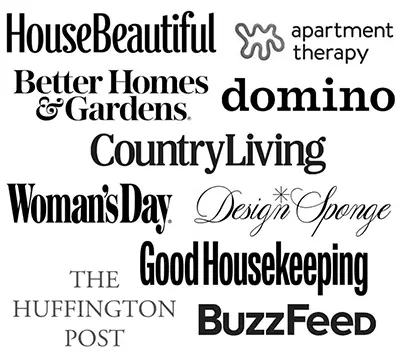Home automation is no longer conceptual or a thing of the future. Here are a few ways in which home automation makes use of technology to enable homeowners to remotely control different elements of their home, from lighting and thermostats to security systems and entertainment. In this developing field, more and more professionals are being requested with competencies in home automation systems.
Now, if you want to get into this booming industry, a home automation course would be the perfect place for you. Regardless of whether you are a DIY, Homeowner, or Professional who wants to enter the space, there is a home automation course that will give you an excellent starting point from which you can design and install smart home systems.
In this article, we are going to look at what a Home Automation course is all about; what you can learn and benefit from both as a person and a professional. We will also understand actionable advice, what mistakes to avoid, and how you can choose the best course based on your requirements.
Home Automation Course
A home-automation course is an organized course that trains people in controlling and automating house functions with smart technology. These programs cover everything from basic smart home concepts to setting up and handling complex systems.
What Should Be The Key Elements Of A Home Automation Course
- Home Automation Basics: In this first video from the playlist Home Automation Demystified, you’ll get an introduction to smart technology and home automation systems like the devices and platforms you’re probably already familiar with.
- Smart Home Devices and Networks — Hands-on with smart thermostats, lighting, security cameras, smart speakers/voice assistants. Discover how the appliances of the network interact together over wireless base stations.
- Popular Home Automation Platforms: Discover must-know platforms such as Google Home, Amazon Alexa, and Apple’s HomeKit, and how to integrate/control devices with these systems.
- Install and Configuration: Learn installation procedures, wiring instructions, and how to configure automation systems for ideal operation.
- Network Security: Learn how to keep your home automation network safe from online threats.
User Privacy Protection: know how to protect user data. - Practical Applications: Creating efficient, convenient, and energy-saving smart home solutions.
Who can learn a Home Automation Course?
- Technology Lovers: This is the course for you if you have a great passion for technology and wish to gain mastery over home automation systems.
- Home Owners: If you want to automate your own home for convenience, security, or even energy efficiency, then a course will give you the know-how.
- Professionals — individuals employed in areas like electrical engineering, I, or home construction can learn about home automation to diversify their skills and provide new services for clients.
Why You Should Study Home Automation
Be Lightyears Ahead of the Competition
Now, Home Automation is one sector of the tech industry growing super fast. Statista predicts the worldwide smart home market to grow from $79 billion in 2020 to $135 billion by 2025. Hence, there is a demand for Home Automation Professionals, which nowadays is picked up by top-class professionals who want to make a difference and earn good money.
Create Smarter, More Efficient Homes
Learn how to get these savings by automating your home. These can include exports such as setting up automation of home equipment that turns the lights on and heats or cools the house for you based on your lifestyle, providing a set-it-and-forget-it technology to save both money and time.
Improve Security and Safety
The role of home automation in enhancing the security of a house is as important. You can have your home installed with an automated key-less entry system, security cameras, motion sensors, and alarm systems that will enable you to monitor and check the status of your home even when you are away from it. By taking a home automation course, you are learning how to install and maintain these very important systems in order to offer the ultimate security.
How to incorporate multiple devices
By far one of the most powerful things about home automation is bringing everything under control, and there are so many devices that you can integrate. Once you know how to use the different smart home devices—the smart lights with your fan, your refrigerator nice maker with an NFC-enabled urn, only then can your automated future be born. An effective home automation course is going to show you how to connect and sync lighting, security systems, and entertainment paradigms so you can control everything from a single platform.
This is the Learning of Home Automation Course
With a course in home automation, you will learn many technical skills and practical concepts that help to implement these solutions successfully.
- Networking Basics
A lot of smart home devices are dependent on wireless networks for their operation, so understanding the basics of networking is very useful. Wi-Fi, Zigbee, Z-Wave, and Bluetooth protocols for device connectivity. - Installation and Configuration
This will allow you to get real hands-on training on how smart devices are installed and can work together effectively. Establish smart thermostats, lights, security cameras, and more. Determine how to troubleshoot common installation issues. - Automation Programming
Most home automation systems have some aspect of programming, especially for custom routines and triggers. Upon completion of a home automation course, you will know how to create and edit scripts for automations so that your smart home automatically behaves how you want it to-does what you need when or before you ask. - Security Systems Setup
Given the increasing rise in cyber threats, anyone who has even looked at the cost of a security camera should make sure they understand how to set up secure home automation systems. How to prevent access from unauthorized parties to your home network and smart devices. - Voice Control and Virtual Assistants
Amazon Alexa and Google Assistant are key components of smart home systems referred to as voice assistants. This course will teach you how to set up and use these systems to control devices by voice.
Selecting the Right Home Automation Course
It can be a bit daunting with such a large choice when it comes to finding the right home automation course. The feedback discussed below will give you an idea of how to proceed, but in the case above, if the person had only a few words and no explanation, his or her opinion is not something you can really count on.
Look for Hands-On Experience
The best courses out there will give you experience with real smart devices. Seek courses that offer lab or simulated environments to enable you to install and configure systems.
Consider Online vs. In-Person Training
Online teaching makes sense for a person who wants to stay in one place, but some people benefit more from live training, where you can ask questions and meet like-minded music enthusiasts. Keep in mind how you like to study when making a decision.
Course Duration and Cost
Courses last from a few weeks to several months. Before you choose a course, ask yourself how much time you can invest in the course and make sure to calculate your budget. Look for a course that suits your learning speed and career aspirations.
Check the Curriculum
Make sure the course includes all of the areas you are interested in learning or solutions that comprise device integration, security, automation programming, etc. This breadth provides a great opportunity to have a fully developed curriculum that covers the basis of not just one but many home automation systems.
Potential Pitfalls in Home Automation
Despite having an in-depth look at a home automation course, you can still make some of the same mistakes made by other novice users when installing their smart home:
- Neglecting Network Security
Your home automation is only as secure as your network. Strong encryption is necessary for a Wi-Fi network, and the usage of safe passwords on all devices connected to the internet. - Overcomplicating the System
It is very easy to overreach and want to automate everything in one fell swoop. If you are just starting, don’t rush into complicated systems that you will find hard to maintain. - Ignoring Compatibility
Smart devices are not always interoperable. Before you spend a dime on smart devices, make sure they come with a compatible compatibility system that works in your intended ecosystem of Amazon Alexa, Google Assistant, or Apple HomeKit.
FAQs
The main goal for a new home automation course
The ultimate objective of a home automation course is to equip people with the capability to install, configure and utilize smart devices
Do you need to know technical stuff beforehand for a home automation course?
Although a little background in technology may go a long way, most beginners can take a home automation course and start at the very beginning.
Can I complete a home automation course quickly?
This home automation course can last for weeks or even a few months based on the content of the course.
Is it possible for me to have a home automation system with the help of experts?
But of course, home automation is the sort of task that you can probably do after finishing a training, particularly if you adhere to the guidelines on how to integrate devices and secure them.
Can I do home automation courses online?
The good thing is that now, you can learn home automation online from the comfort of your bedroom at your own pace.
Conclusion
An automation course for the home, acting as a strong stepping stone directly into the world of complete smart homes. By knowing how to automate certain tasks, or control devices through voice or routines, this can bring your home to life and not only make things more secure but also more convenient. Home automation is increasingly becoming the norm in contemporary life, and therefore, having some knowledge of this subject may serve you well, either as part of an attempt to improve your own living space or if you are contemplating a career in this area.




